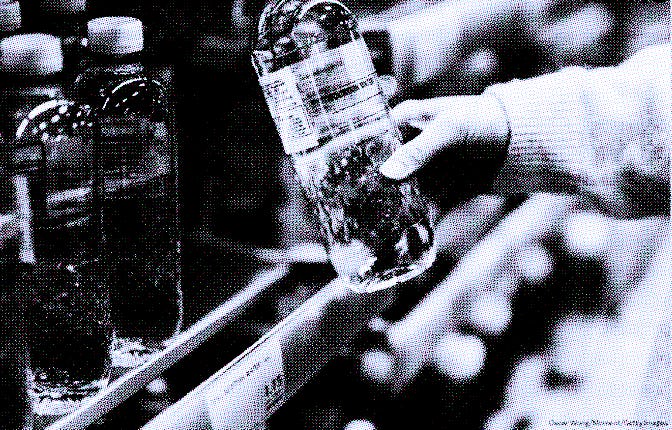The surprising link between your plastic water bottle and weight gain
A revealing study found that these chemicals in everyday plastic products may affect your metabolism.

Plastic feels like one of the necessary evils of modern life. We all know that it’s not great for the environment and most of us have heard something about the ways plastic can impact human health, but it feels unavoidable. Plastic is in everything from clothing to chewing gum — yes really. And now a new study suggests that everyday plastics may negatively impact your metabolism.
The study, which was published today in the journal Environmental Science & Technology, analyzed 34 everyday objects that contain plastics — like yogurt cups and dish sponges. The research, conducted at the Norwegian University of Science and Technology, found more than 55,000 chemical compounds in those 34 products. According to the study, scientists were only able to identify 629 of the chemical compounds, 11 of which are known to interfere with human metabolism. It’s important to note that this was deduced from lab testing that did not involve humans, only human cells.
Metabolism is the process the body uses to turn food into energy, and the 11 chemicals found in these plastics areknown as metabolism-disrupting chemicals. We often refer to metabolism when we’re talking about weight because our metabolism determines how effectively our body creates and uses energy, but in reality, because we use energy for everything from sleeping to blinking, it affects every aspect of our lives.
That being said, the study focused on the ways the chemicals in plastics affected the development of fat cells. What they found was that one-third of the products they analyzed had metabolism-disrupting chemicals that induce the body to create more fat cells, and that they carry the potential to interfere with how the body stores fat.
“Our experiments show that ordinary plastic products contain a mix of substances that can be a relevant and underestimated factor behind overweight and obesity,” Martin Wagner, an associate Biology professor at Norwegian University of Science and Technology and co-author of the study, told EurekAlert. In other words, the chemicals in plastic could contribute to weight.
Look, I am not here to tell you that fat is bad. There are enough cultural myths around fat to keep us paranoid and judgmental forever. The point is that these plastics that we use everyday can impact our metabolism — literally the process that keeps us alive — in a measurable way, which is not good.
How are these metabolism-distrupting chemicals getting into your body, you may wonder? While scientists used to believe that plastic chemicals just sort of stayed in plastic, the researchers involved in this study contend that in real world conditions, the chemicals in plastic products leech out and enter our bodies, EurekAlert reported. And other recent research has shown that we all accidentally ingest thousands of tiny pieces of plastic a year.
So, what’s the solution? Well the authors of the study wrote that they are hoping that “a shift toward chemically less-complex plastics represents a way forward to a nontoxic environment.” Okay, but until manufacturers catch on to simpler plastics, I think I’ll be drinking my water out of a mason jar.